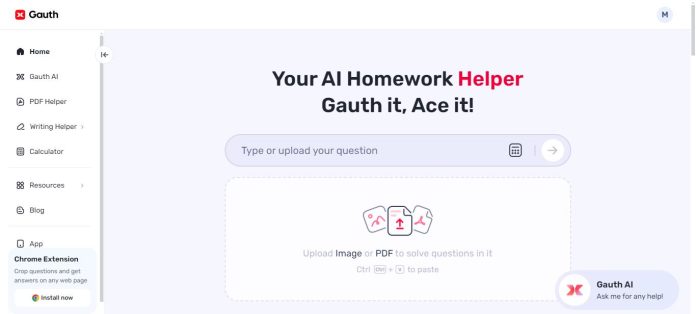The conclusion of academic writing goes beyond a synopsis of the material offered. It offers the last chance to clarify the main points of contention, support the strongest arguments, and make a lasting impact on the reader. A well-written conclusion can improve an academic work and help it to be relevant long after the reader has turned away. Using technologies like Gauth, which provides AI-based homework assistance, students may more quickly negotiate the complexity of writing a compelling conclusion.
Main Point Reinforcement
Repeating the key points of the paper depends on a conclusion. The bulk of the essay explores several themes, however the conclusion offers a quick review stressing key concepts. This reinforcement guarantees that the reader leaves knowing exactly the writer’s point of view. This is a chance to combine the material offered, connecting several points to highlight their contribution to the whole argument.
Integrating Concepts
Apart from summarizing, a good ending links the concepts covered in the work. This linking of ideas enables the reader to grasp the relationships among several arguments and comprehend the whole picture. Good connection of concepts helps the conclusion to build a logical narrative, thereby improving the general flow and clarity of the work.
Drawing to a close Impact
In academic work, the last impression is absolutely important. A good ending can have a long-lasting effect on the reader, therefore rendering the work unforgettable. In demanding academic settings, where a strong ending can set a work apart from others, this is especially crucial. The audience should be able to relate to the ending, which should inspire them to consider the topic critically long after they have closed their books.
Strategies for Crafting a Strong Finish
Restate the thesis statement to start the conclusion. This supports the main point of contention and informs the reader of the paper’s intended concentration.
- List the major ideas covered in the paper in a quick synopsis. This reminds the reader of the supporting data the essay offers all around.
- Relate the results or arguments back to a more general background. This can include talking about future directions of study, society consequences, or more general theoretical models.
- Finish with an arresting question or statement. A provocative question or a strong argument will captivate the reader and inspire them to consider the subject outside of the paper closely.
- Steer clear of introducing fresh material since the conclusion is not the forum for such debates. It should concentrate on grouping the current materials.
Students can gain from AI-based homework help tools like Gauth as they seek to create solid conclusions. These instruments can guarantee that conclusions capture the core of the work and have a significant influence while guiding on efficient organization of them. Eventually, Gauth will help students create well-crafted conclusions by helping with ideas, language polishing, and expression clarity assurance.
Conclusion
An important element of an academic paper that should not be disregarded is its ending. It leaves a lasting impact on the reader, strengthens primary points of contention, links concepts, and offers consequences. Learning the craft of writing effective conclusions helps students improve their academic writing and guarantee that their work speaks to their readers. Using tools like Gauth will help to simplify this procedure by giving the speed and knowledge required to negotiate academic obstacles. Emphasizing the need of investing time and attention to this last part, a strong conclusion can make all the difference in how an academic work is seen.







